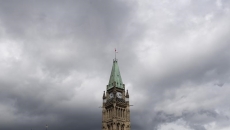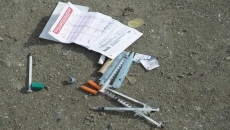As of Wednesday, Feb. 2, 2022, 90% (4,483,908) of eligible people five and older in B.C. have received their first dose of COVID-19 vaccine and 84.1% (4,191,488) have received their second dose.
In addition, 92.8% (4,300,403) of eligible people 12 and older in B.C. have received their first dose of COVID-19 vaccine, 90.1% (4,176,902) received their second dose and 47% (2,178,899) have received a third dose.
Also, 93.1% (4,028,100) of all eligible adults in B.C. have received their first dose, 90.6% (3,917,417) received their second dose and 50.3% (2,176,872) have received a third dose.
B.C. is reporting 1,776 new cases of COVID-19, including four new epi-linked cases, for a total of 327,625 cases in the province.
There are 25,959 active cases of COVID-19 in the province, and 297,682 people who tested positive have recovered. Of the active cases, 988 COVID-positive individuals are in hospital and 136 are in intensive care. The remaining people are recovering at home in self-isolation.
The new/active cases include:
- 507 new cases in Fraser Health
- Total active cases: 10,360
- 248 new cases in Vancouver Coastal Health
- Total active cases: 5,221
- 602 new cases in Interior Health
- Total active cases: 7,664
- 197 new cases in Northern Health
- Total active cases: 1,104
- 222 new cases in Island Health
- Total active cases: 1,593
- no new cases of people who reside outside of Canada
- Total active cases: 17
In the past 24 hours, 18 new deaths have been reported, for an overall total of 2,643.
The new deaths include:
- Fraser Health: four
- Vancouver Coastal Health: seven
- Interior Health: one
- Island Health: six






